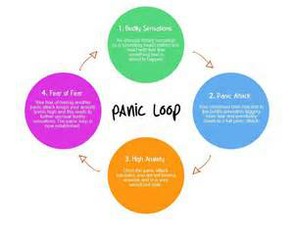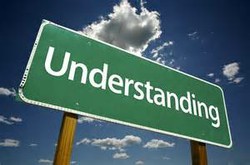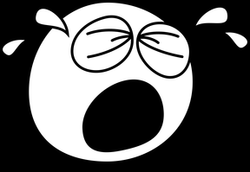I don't need to describe what a full blown panic attack feels like to those who have experienced the terror of an attack. The sudden onset of acute disorientation, heart palpitations that feel like a heart attack, shortness of breath with an intense paralyzing fear that something very bad is about to happen. I personally have suffered severe anxiety and panic attacks since my early teenage years and I can personally attest to the fact that, without treatment, as you grow older, the attacks may happen more often and become more severe. General anxiety is felt by most of us at one time or another in the form of shyness, public speaking, socializing, chronic worrying or the feeling of overwhelming stress dealing with day to day issues. However, chronic paralyzing anxiety and panic can totally disrupt your life and negatively impact your self-esteem and personal relationships. We will explore some of the drug free self-help methods that have been shown in studies to help you get control of your life and feel better. You are always advised to first seek the advice of a medical expert or your physician in your own personal treatment and therapy plan. This article is based on my research and experience. Each individual is different and should seek advice and help in their own personal pursuit of treatment and help.

A Look at Drug Free Ways of Conquering Anxiety When Panic Attacks
by KateDy
Over 6.8 Million Adults Suffer With Some Type of Panic or Anxiety Disorder. Women Are Twice as Likely to be Affected and Symptoms Range From Mild to Severe and Paralyzing
What is Anxiety
Reduced to simplicity, anxiety is often a physical symptom of your body and mind to let you know know that there is something bothering you to a greater extent than normal. There could one or many things in your life that are causing you more than normal concern. It could be simply feeling overwhelmed by your work or personal life or a past event or experience that you have tried to ignore and hidden that eventually ends up manifesting in the form of anxiety. The first step to conquering it is to figure out what it is that is upsetting you the most. What I personally found helpful was to sit down daily and jot down the things that were upsetting me. It is amazing after a couple of weeks what will surface and help enable you to sort out and pinpoint the most obvious reasons for the anxiety. It is only logical that the key and first step in fixing anything is to first know what is broken. Understanding what anxiety is and where it comes from takes away some of the fear of the unknown. All of this is discussed in detail in many of the self-help books out there as well as used in clinical therapy.
 panic cycle |
Theories - Causes of Anxiety and Panic Disorders
Cognitive Thoughts
Negative thoughts do cause anxiety. Increased anxiety then manifests into full blown panic attacks. When you feel afraid it is because you tell yourself that something awful is about to happen. If you have to give a speech in front of a lot of people you might tend to have thoughts that you will freeze out of fear, forget your speech and everyone will laugh at you. Your fear does not really stem from giving the speech but the fear comes from the negative messages you are giving yourself. This is sometimes referred to as, "stinkin thinkin". Change the way you think, get rid of the negative messages, and you can change the way you feel. The theory of modification of our cognitive thoughts means simply that to change the way we think will change the way we feel.
Hidden Emotions
Those that are always trying to please everyone are generally more prone to anxiety. They fear conflict as well as feeling angry. They tend to sweep everything under the rug hoping the dirt never comes to the surface and the rug is never picked up. It becomes such a way of life that most people pleasers are not even aware that they are just hiding from their emotions. The problem is that eventually the feelings make their way to the surface but in the form of panic and anxiety. Stop sweeping the emotions under the rug and tackle your emotions in a healthy and positive way.
Brain Chemical Imbalances
The biological theory focuses on chemical imbalances in the brain as a cause of anxiety and panic disorders. Use of mediations are usually the course of treatment based on this theory. There are clinical studies that support this theory. However, there are many studies that have shown very favorable results without the use of medication. This is something that must be discussed with your doctor or other medical advisor.
Exposure
When we are afraid of something we do our best to avoid it. Avoidance is a basic cause of anxiety because you feel anxious trying to avoid the thing you fear. If you fear heights you avoid them. If you feel shy, you avoid people. If you fear bugs, you stay inside. If you fear confined spaces, you always use the stairs not the elevator. In other words, you spend a lot of time running from the monsters you are afraid to confront.
Ways to Fight Your Fears
Panic attacks are usually brought on by negative or frightening thoughts. The longer the duration of these negative thoughts, the more negatively your body responds with actual physical symptoms that will keep feeding off of each other in a vicious cycle until you are in a full blown panic attack. These fears, as realistic and terrifying as they seem, are usually unfounded and usually irrational. Of course you wonder why you would be so frightened if there was really no danger, but this is just your mind emotionally trying to justify the distorted fear thoughts. It is very important to immediately stop the "fear thought" cycle by:
- Acknowledge the Fear - Take Several Deep Breaths - Distraction - Do Few Quick Exercises or Take a Short Walk
- Acceptance - Don't Run From the Thought of a Panic Attack - The Act of Acceptance Helps Provide a Calm Clarity Needed to Get Through the Attack
- Alternative Response - Don't Get Wrapped Up in the Fear - Avoid the Flight-or-Fight Reaction by the Use of Calming Reaffirmations That You Are Okay and the Fear Will Pass
-
Avoid - Abruptly Stop - "Stinkin Thinkin"
Quickly tackling negative thoughts is also a technique that I found especially helpful in feeling better and putting the brakes on an attack. The more negative thoughts such as:, "I'm no good, I'm afraid, I'm not treated fairly, I'm not good enough, I'm not well, I'm not liked, I'm not attractive enough, I'm not appreciated, I'm angry, I'm not in control, I'm socially incompetent", and the list goes on and on, will most definitely lead to feelings of depression, anxiety and general unhappiness. The cliché, "you are what you think", is a very simple but great truth. We are human and at times it is easy to get caught up in, "stinkin thinkin". Knowing this and acquiring the ability to abruptly change the negative thoughts to positive ones will go a long way towards feeling better and tackling the anxiety. This is also emphasized in therapy. A form of distraction is to sit down and write down the negative feelings you are having. Under each negative feeling on the page, write down a positive contrasting feeling. Once done read out loud all of the positive feelings you've listed. Not only does the process of sitting down and writing distract you from the onset of an attack, but it also uses the technique of reciting out loud positive reaffirmations that help modify your thought process.
Use of the above techniques is not a cure all and is part of a science known as Cognitive Behavioral Therapy (CBT). The methods and techniques used in CBT take work, time and patience and are not an overnight solution. For chronic sufferers, they are techniques that must be used on an on-going basis. You might feel much better and suffer fewer attacks over time but that does not mean you are cured for life. However, the practice of these therapies go a long way toward helping alleviate the intensity and frequency of an attack.
I have personally found the book by, David D. Burns, M.D., along with his workbook to be a very helpful tool in my constant battle with panic and anxiety. Dr. Burns discusses his belief about medications used in conjunction with therapy and you should discuss this with your own physician to make informed choices about your own personal treatment plan. With lots of patience, work, and understanding, you too, can conquer panic and take back control.
You might also like
How to Cure Panic Attacks Using Natural RemediesThose who suffer with panic attacks often turn to drugs to heal themselves, h...
Positive Thinking or Realism: Which Side Are You On?There is nothing wrong with having a hopeful outlook on life. As long as one ...









Comments
I love this one book you have on the recommendation list here, "When Panic Attacks" by David Burns. I found that book immensely useful for dealing with both anxiety and depression. I also have found CBT useful for overcoming anxiety and depression, and improving my quality of life in general.
There are also times when I've found the exposure method, or the awareness of hidden emotions, really useful too.
Thank you for sharing this! I think what you write here is spot-on.